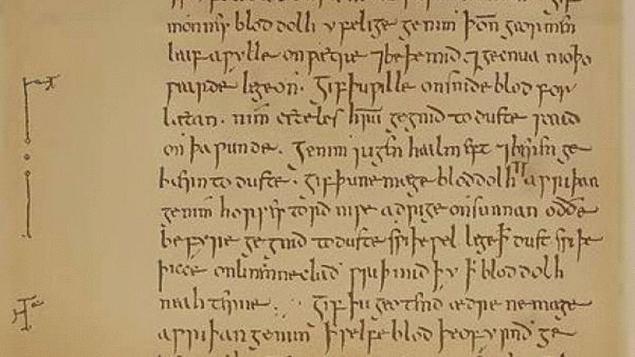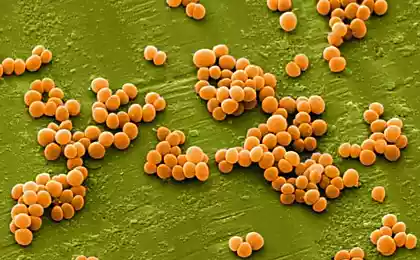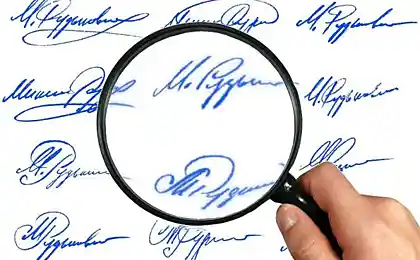472
Eye medicine from thousands of years ago copes with the most famous bacteria of our days
Bloodletting, mercury pills, drilling holes in the skull – many of the ancient healing methods seem absurd from the point of view of modern medicine. But recently, scientists were surprised to find that the Anglo-Saxon eye medicine thousands of years ago copes with the most famous bacteria of our day – methicillin-resistant Staphylococcus aureus (MRSA). British researchers will present the materials of their opening this week at the annual conference of microbiologists in the UK.

Professor Christina Lee of the University of Nottingham has translated this recipe from the old English of the book of Balde, which was written in the 9th century ad and is one of the earliest known medieval texts. The researchers have prepared four portions of a drug that uses two types of onions and garlic, wine, and ox bile, cooked in a copper pot and infused for nine days.
Take an equal share of onions and garlic, and you mix them, take wine and bull's gall equal amounts, mix it with onions, put into a copper boiler and let stand nine days, strain through a cloth and clean as it should, pour in the horn and in the night bury her in the eye with a quill pen.
Researchers have tested this strange potion on the cultures of MRSA, placed in synthetic simulators wounds, on infected rats. None of the ingredients of the drugs individually has not had the culture of no effect, but a ready tool that killed almost all cells in the strains survived only one bacterium out of every thousand. In a low concentration potion didn't kill the staph, but nevertheless broke its connection, blocking the bacteria the ability to hit infected tissue. Some scholars see such disruption as a new possible method for the treatment of resistant strains of bacteria.
Now scientists want to play some more ancient potions to test them against some of the modern diseases and pathogens. published
Source: gearmix.ru/archives/19222

Professor Christina Lee of the University of Nottingham has translated this recipe from the old English of the book of Balde, which was written in the 9th century ad and is one of the earliest known medieval texts. The researchers have prepared four portions of a drug that uses two types of onions and garlic, wine, and ox bile, cooked in a copper pot and infused for nine days.
Take an equal share of onions and garlic, and you mix them, take wine and bull's gall equal amounts, mix it with onions, put into a copper boiler and let stand nine days, strain through a cloth and clean as it should, pour in the horn and in the night bury her in the eye with a quill pen.
Researchers have tested this strange potion on the cultures of MRSA, placed in synthetic simulators wounds, on infected rats. None of the ingredients of the drugs individually has not had the culture of no effect, but a ready tool that killed almost all cells in the strains survived only one bacterium out of every thousand. In a low concentration potion didn't kill the staph, but nevertheless broke its connection, blocking the bacteria the ability to hit infected tissue. Some scholars see such disruption as a new possible method for the treatment of resistant strains of bacteria.
Now scientists want to play some more ancient potions to test them against some of the modern diseases and pathogens. published
Source: gearmix.ru/archives/19222























